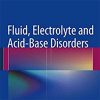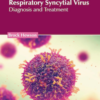Heparin 2.0: A New Approach to the Infection Crisis
karger.comIn April 2020, the US Food and Drug Administration granted emergency use authorization for certain medical devices to be used in patients with coronavirus disease 2019 (COVID-19). This included extracorporeal blood purification devices.
This narrative review will give a brief overview regarding some of the extracorporeal devices that could be used to treat COVID-19 patients, including the Seraph® 100 Microbind® Affinity Blood Filter, produced by ExThera Medical (Martinez, CA, USA), first licensed in the European Economic Area in 2019.
The Seraph® 100 contains ultrahigh molecular weight polyethylene beads with end point-attached heparin and is approved for the reduction of pathogens from the bloodstream either as a single agent or as an adjunct to conventional anti-infective agents.
Bacteria, viruses, fungi, and toxins have been shown to bind to the immobilized heparin in a similar way to the interaction with heparan sulfate on the cell surface. This binding is nonreversible and as such, the pathogens are removed from the bloodstream.
In this review, we describe the pathophysiological basis and rationale for using heparin for pathogen removal from the blood as well as exploring the technology behind the adaptation of heparin to deprive it of its systemic anticoagulant activity.

















